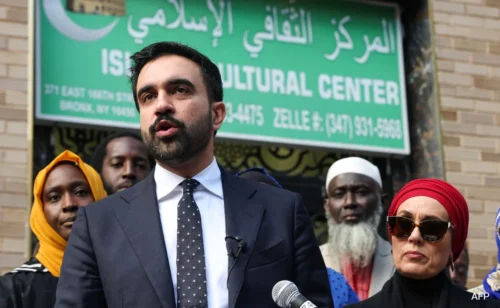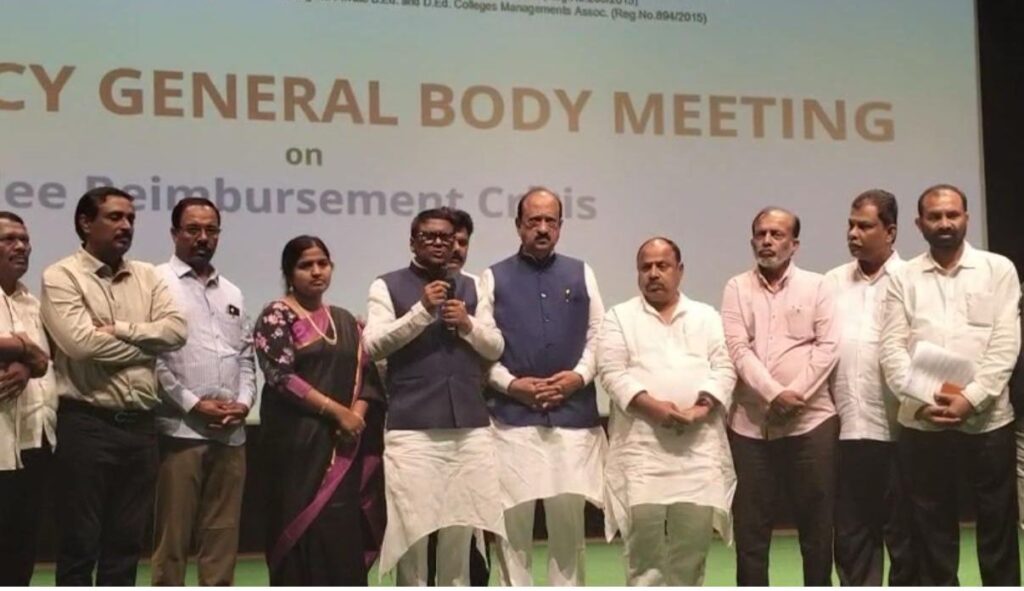Rama Krishna Sangem
In a stunning setback to US President Donald Trump, Indian origin American Zohran Mamdani, who is also a Muslim – made history November 4 Tuesday. At 34, the newly-elected Mayor of New York – one of the wealthiest and most iconic cities in the world – is the youngest member of a growing and increasingly influential Indian-American community to hold elected office in the United States, whether at state or federal levels.
A little over a decade ago, there were fewer than half-a-dozen names on that list. Today there are nearly 60, counting down from the ‘samosa caucus’ – the informal name for a group of six lawmakers in the US House of Representatives who share Indian heritage – and not including federal appointees like Vivek Ramaswamy and FBI Director Kash Patel.
The upward trend started in 2013 with the election of Democrat Amerish ‘Ami’ Bera from California. He wasn’t the first, though. The first was Dalip Singh Saund, from California in 1957, and Bobby Jindal, from Louisiana in 2005. But Bera’s election seemed to get the ball rolling.
In 2015 the number doubled; Ro Khanna, also a Dem from California, joined him. Two years later Raja Krishnamoorthi, an Illinois Democrat, made three. By 2020 there were five; Pramila Jaypal and Shri Thanedar, Democrats too, were elected from Washington and Michigan.
And on January 1, 2026, concurrent with Mamdani assuming office, Democrat Suhas Subramanyam will follow two terms in the Virginia legislature with his debut in the House. He will become the sixth (and record-breaking) member of the ‘samosa caucus’. That is a staggering 500 per cent increase in 12 years
And it doesn’t include names like Kamala Harris and Bobby Jindal, who have Indian roots or heritage but choose not to include that part of themselves in their political identities.Also, that isn’t the only staggering number. Reports suggest that between 2013 and 2025 the number of Indian-Americans in state legislatures jumped by 400 per cent; from fewer than 10 in 2013 to nearly 50 today.
That list includes Ghazala Hashmi, an Indian-origin Democrat elected today as the Lieutenant-Governor of Virginia. She is already the first Muslim and first South Asian in the state Senate.
More Indian Americans elected in the US
A stronger political voice is significant given the range of issues that affect the community, particularly with the Donald Trump administration tightening visa rules for skilled immigrant workers and international students, groups India contributes to in large numbers.
More Indian-Americans in elected offices in the US doesn’t automatically mean visas will be easier to come by or fewer incidents of racism, but it does mean the community has more influence over policy-making at all levels of the American government.
The addition of political clout to the community’s deep pockets – Indian-Americans have always been a critical source of campaign funding for both Democrats and Republicans – is also significant given the long-pending trade deal being negotiated between the two countries.
Really, any US policy decision, foreign, economic, or defence, that affects India and Indian interests can be viewed, and is viewed in India, through the prism of Indian-Americans in that country’s politics, and the success of that community is followed closely in this country.


